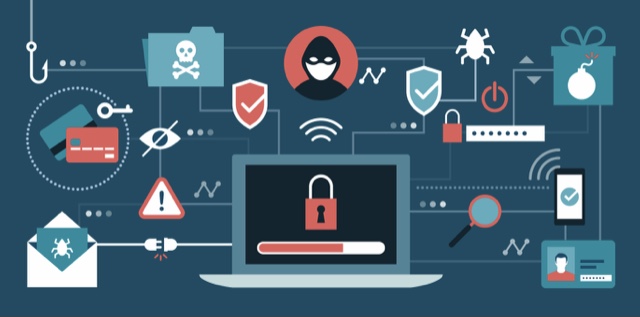An Introduction
Your front door is the first bulwark against intruders. You use a bike lock to keep your bike safe from thieves. To safeguard your valuables, you put them in a safe. The question mark is, how can you keep your online identity safe? We’ve put up an extensive primer on internet safety that includes safety advice and best practices. Have a question about a particular online security issue? Fortunately, you’ve arrived at the correct destination! To learn more, continue reading!
Understanding Cybersecurity
Cybersecurity is only an umbrella phrase encompassing the technology, techniques, and procedures to safeguard online data from illegal access or exploitation. People contribute to cybersecurity daily by adhering to internet safety guidelines and best practices. This article will define the term “cybersecurity” and explain its significance.
5 Basic Online Safety Tips
Start with the basics when it comes to online safety to keep yourself and your family safe online; we’ve compiled a list:
- Use Strong Passwords and Prevent Unauthorized Access to Account Information
- Pay attention to password requirements while establishing a new password.
- Passwords should be changed often.
- To protect yourself, don’t disclose your passwords to anybody.
- Don’t choose passwords that are too easy to guess to protect yourself.
- Store passwords and password clues in a safe place, and don’t share them with anybody. Encrypt passwords in a safe file on your computer, or use another password storing mechanism.
- Protect the Privacy of Individuals’ Personal Data
- Read the fine print before submitting your credit card information to any website.
- A secure website has a padlock or “https://” prefix in the browser address bar, so never submit your financial information there.
- Use the SNB SD mobile banking app to disable your card if you believe your credit card information is exploited online.
- It’s crucial to keep your personal information safe both online and offline since it may be spread throughout the internet once it’s taken. Remember to cover the PIN pad while making transactions and learn how to recognize a credit card skimmer at petrol stations. Another option to safeguard your financial information is to use a chip debit card.
- Ensure that your devices are safe and secure.
- Encryption methods like passwords and fingerprint scanners may also be used to protect your data. 30% of smartphone users were found not to be using passwords, screen locks, or other security settings to protect their devices.
- Make sure they’re all protected to protect your gadgets, from PCs to smartwatches and even TVs.
- Keep an eye on software updates.
- Install software updates as soon as they become available, mainly if they feature significant security enhancements.
- Never miss an update again by setting up automatic updates on your devices!
- Pay Attention to Wifi
- Never put your confidence in the security of a public wifi network. Avoid using public wifi networks that are not secure.
- Use strong passwords to secure your wireless networks.
- Make periodic changes to your wireless password.
The Bottom Line
Today, online security is a constant worry. Learning how to prevent online identity theft will be a continuous endeavor as technology changes and advances. For more information, visit https://www.kingbillywin.com!



